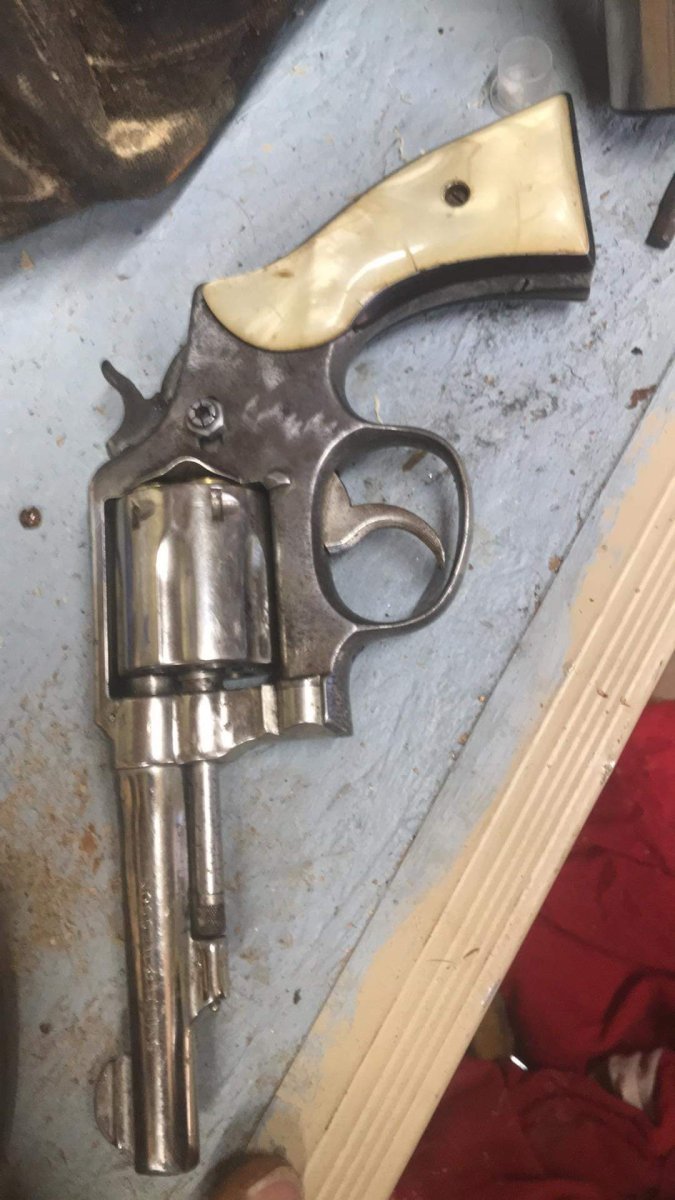Please post Want To Buy Firearms in the WTB forum, Thanks
Dealers are welcome here at the trader, we just ask that you post in the appropriate forum. A dealer is classified as someone who sells two or more items a week.
If you are a dealer and require sales tax and a background check, make sure that is clear on your posts.
If you think someone's price it too high, do not post it in the thread, send it in a pm. People can post there items for whatever price they want. We do not want any sales threads hijacked with price arguments.
For the time being, dealers and private sellers can post in the main firearms area, but if we have any problems we may have to split it up into two separate forums.
I will just listen to the trader community as to whether that will be needed or not.
If you are listing in the firearms swap and sell please do one of two things:
Put a general location in the title: NW, Metro, South, etc.
or
Put your location in your profile, again it doesn't have to be specific. Just to keep someone in Canton from getting too excited about something in Savannah
You can ask questions and get answers in the actual thread, pms are no longer required. Please note that the threads will still stay in chronological order, so it is impossible to bump a post. After a few days you can re list the item and place a link to the original post or just start a whole new one.
If you would rather have PM's and not have any responses in the thread of your sale item, just put that in the post and close the thread. Just make sure to mark it sold when it sells.
You must adhere to all local, State, and Federal gun laws
We strongly recommend you require a Ga Driver's License and preferably a Ga Firearms License for any trade, purchase, or sale of a firearm.
We also recommend filling out a Bill of Sale for any transaction for the protection of both parties. If you need one, you can find one here:
http://www.freebusinessforms.com/print/bill-of-sale/Gun-bill-of-sale.rtf
Once your item has sold, please mark it as such. Please leave the title and price, just edit the title to include sold or traded. We ask this so people can search the forums to see how frequently certain items come up and how much they are going for.
Right now we are thinking you can repost every three 3 days, but you wont be able to delete the old one. In the new post, you could have a link to the original post, or you could just go back to each and mark them sold. Our thinking is that we would like for items that have been sold to remain in the trading post so people can reference them for asking price or see about how often that particular item comes up for sale, rarely or often.
Dealers are welcome here at the trader, we just ask that you post in the appropriate forum. A dealer is classified as someone who sells two or more items a week.
If you are a dealer and require sales tax and a background check, make sure that is clear on your posts.
If you think someone's price it too high, do not post it in the thread, send it in a pm. People can post there items for whatever price they want. We do not want any sales threads hijacked with price arguments.
For the time being, dealers and private sellers can post in the main firearms area, but if we have any problems we may have to split it up into two separate forums.
I will just listen to the trader community as to whether that will be needed or not.
If you are listing in the firearms swap and sell please do one of two things:
Put a general location in the title: NW, Metro, South, etc.
or
Put your location in your profile, again it doesn't have to be specific. Just to keep someone in Canton from getting too excited about something in Savannah
You can ask questions and get answers in the actual thread, pms are no longer required. Please note that the threads will still stay in chronological order, so it is impossible to bump a post. After a few days you can re list the item and place a link to the original post or just start a whole new one.
If you would rather have PM's and not have any responses in the thread of your sale item, just put that in the post and close the thread. Just make sure to mark it sold when it sells.
You must adhere to all local, State, and Federal gun laws
We strongly recommend you require a Ga Driver's License and preferably a Ga Firearms License for any trade, purchase, or sale of a firearm.
We also recommend filling out a Bill of Sale for any transaction for the protection of both parties. If you need one, you can find one here:
http://www.freebusinessforms.com/print/bill-of-sale/Gun-bill-of-sale.rtf
Once your item has sold, please mark it as such. Please leave the title and price, just edit the title to include sold or traded. We ask this so people can search the forums to see how frequently certain items come up and how much they are going for.
Right now we are thinking you can repost every three 3 days, but you wont be able to delete the old one. In the new post, you could have a link to the original post, or you could just go back to each and mark them sold. Our thinking is that we would like for items that have been sold to remain in the trading post so people can reference them for asking price or see about how often that particular item comes up for sale, rarely or often.







